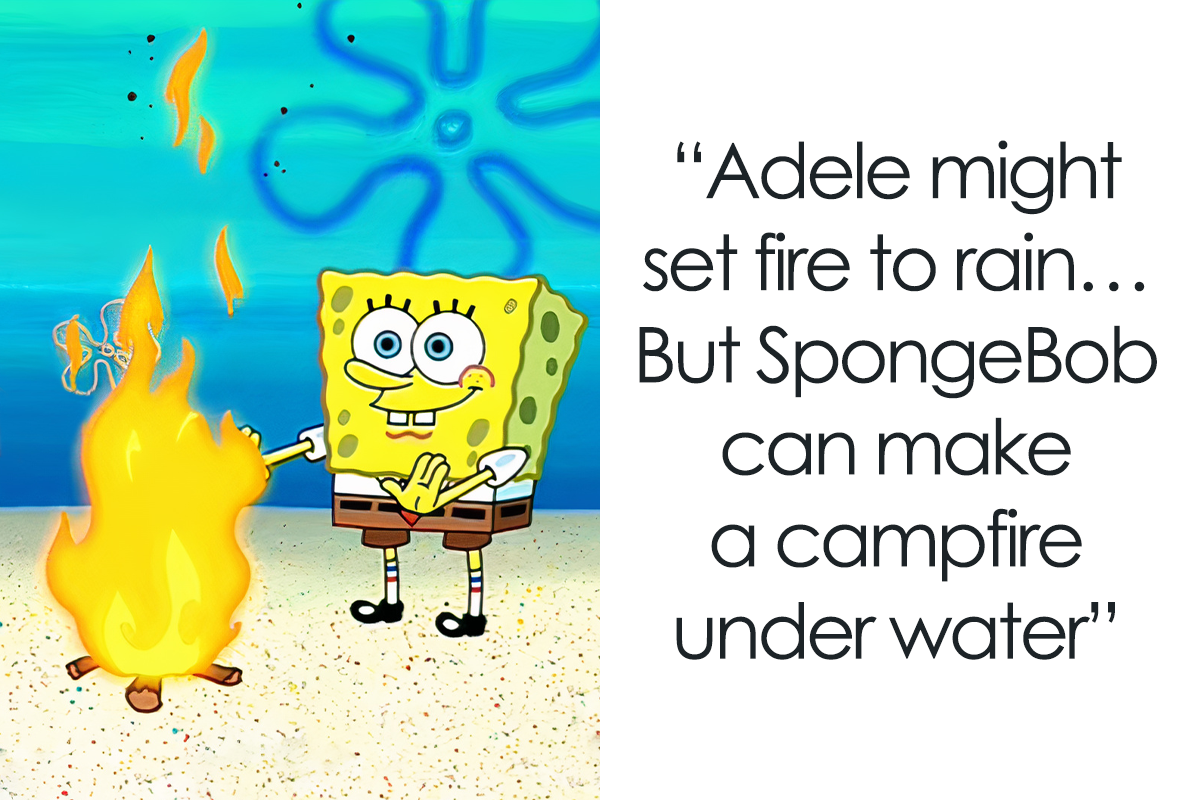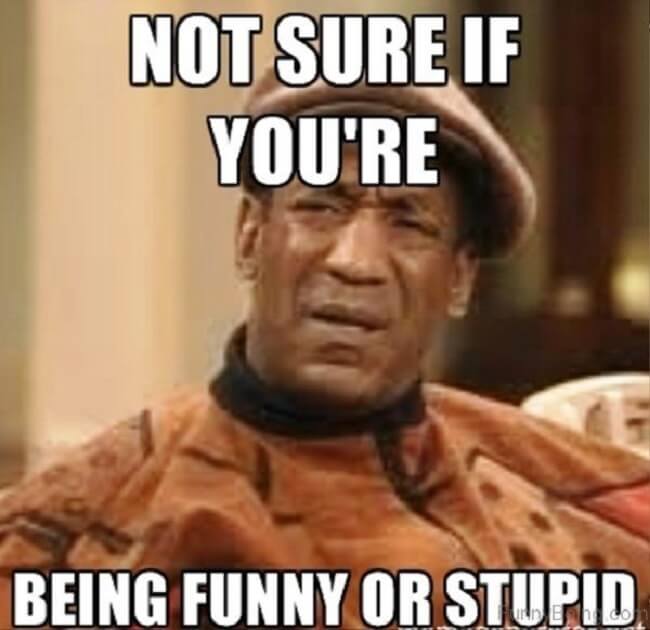Why Offensive Jokes Hurt & How To Navigate Humor Responsibly
Does the punchline justify the pain? Or, is the pursuit of laughter sometimes a dangerous game? The line between harmless jest and hurtful jab is often blurred, demanding a closer examination of what constitutes an "offensive joke" and why it's crucial to understand its potential impact. We delve into the complex world where humor clashes with sensitivity, exploring how jokes can wound, divide, and perpetuate harmful stereotypes. This is about navigating the minefield of modern comedy and learning to discern between humor that uplifts and that which tears down.
For years, the realm of comedy has been a battleground. On one side, proponents of unrestricted expression argue that nothing should be off-limits in the name of humor. They believe that comedy, at its best, should challenge societal norms, provoke thought, and even make us uncomfortable. On the other side, a growing chorus insists that certain boundaries must be respected. They argue that jokes targeting marginalized groups, exploiting trauma, or relying on hateful rhetoric inflict real harm and contribute to a culture of disrespect. This article navigates this contentious terrain, offering insights into the psychological underpinnings of offensive humor and its far-reaching consequences. The ultimate goal is to foster a more nuanced understanding of how humor can be wielded responsibly, promoting empathy and inclusivity rather than division.
| Category | Information |
|---|---|
| Topic | Offensive Jokes |
| Definition | Humorous attempts that target specific groups/individuals, causing discomfort/harm. |
| Psychology | Stem from unconscious biases, societal norms, or a desire to challenge authority. |
| Impact | Can perpetuate stereotypes, cause emotional harm, and normalize intolerance. |
| Cultural Differences | Humor varies across cultures; what's funny in one may be offensive in another. |
| Ethical Considerations | Responsibility to promote respect and inclusivity. |
| Reference | American Psychological Association |
What Are Offensive Jokes?
An offensive joke, at its core, is a form of humor that intentionally or unintentionally targets specific groups, individuals, or sensitive subjects in a manner that evokes discomfort, pain, or demonstrable harm. The mechanism behind these jokes often involves the amplification of stereotypes, the leveraging of existing prejudices, or the utilization of overtly derogatory language, all in the pursuit of a laugh. While the perception of humor remains inherently subjective, offensive jokes habitually overstep the boundaries of what is considered acceptable by a significant portion of the population.
- Unleashing The Power Of Xhamster Your Ultimate Guide
- Anthony Kiedis Girlfriend Age The Inside Scoop Yoursquove Been Waiting For
The landscape of offensive jokes is broad, encompassing those that denigrate individuals based on race, gender, religion, sexual orientation, disabilities, or even the experience of traumatic events. These are not merely harmless jests; they are potent agents that can solidify harmful stereotypes and actively contribute to a culture steeped in disrespect and intolerance. Grasping the fundamental nature of what constitutes an offensive joke is the initial and crucial step in cultivating healthier, more respectful forms of communication.
Psychology of Offensive Jokes
The psychological currents that drive the creation and consumption of offensive jokes are remarkably complex. Frequently, these jokes are rooted in unconscious biases, deeply ingrained societal norms, or a latent desire to challenge established authority. A groundbreaking study published in the esteemed Journal of Personality and Social Psychology sheds light on this dynamic, revealing that humor can function as a dual-edged sword, serving as both a tool for inclusion and a weapon of exclusion. When deployed without careful consideration, jokes can inadvertently alienate and marginalize vulnerable groups.
Moreover, offensive jokes often serve as a mirror, reflecting deeper societal maladies such as systemic discrimination and persistent inequality. By dissecting the psychology of humor, we gain a clearer understanding of why certain jokes resonate with audiences while others provoke outrage. This heightened awareness is essential for cultivating empathy and fostering respect in our everyday interactions, helping us to bridge divides rather than widen them.
- Phil Hartman The Iconic Comedian Who Left An Indelible Mark
- Unveiling The World Of Xhamsters A Comprehensive Guide
Examples of Offensive Jokes
The following are illustrations of offensive jokes that have ignited considerable controversy:
- Racial jokes that perpetuate and reinforce harmful stereotypes associated with specific ethnic groups, often based on ignorance and prejudice.
- Sexist jokes that demean women, reduce them to objects, or perpetuate the insidious myth of gender inequality, undermining their contributions and worth.
- Homophobic jokes that mock LGBTQ+ individuals, belittle their identities, and perpetuate discriminatory attitudes based on sexual orientation and gender identity.
- Disability jokes that belittle people with physical or mental challenges, trivializing their experiences and reinforcing ableist perspectives.
- Tragedy jokes that make light of serious events, such as natural disasters, terrorist attacks, or mass shootings, displaying a shocking lack of empathy and compassion for those affected.
These examples underscore the critical importance of carefully considering the potential impact of our words and actions. While humor can be a potent instrument for forging connections, it can also inflict significant harm if wielded irresponsibly and without due consideration for its potential consequences.
Why Are Offensive Jokes Problematic?
Offensive jokes are deeply problematic for a multitude of reasons, each contributing to a corrosive social environment:
- They perpetuate stereotypes: Jokes that hinge on negative assumptions about specific groups serve to reinforce harmful biases and actively contribute to systemic discrimination, solidifying prejudices that hinder progress.
- They cause emotional harm: Offensive jokes can trigger feelings of exclusion, anger, and profound hurt, particularly for those who are directly targeted by the humor, leaving lasting emotional scars.
- They normalize intolerance: When offensive humor becomes commonplace and accepted, it cultivates a culture of disrespect, effectively undermining efforts to promote equality, understanding, and social justice.
Groundbreaking research conducted by the American Psychological Association has demonstrated that repeated exposure to offensive jokes can desensitize individuals to the harm they inflict, making it increasingly difficult to recognize and effectively address discrimination in everyday life, perpetuating a cycle of prejudice and intolerance.
Cultural Differences in Humor
Humor is inextricably linked to cultural context, with its nuances and interpretations deeply embedded within societal norms. What might be considered humorous within one culture can be perceived as profoundly offensive in another. For instance, jokes pertaining to religion might be perfectly acceptable in secular societies but considered strictly taboo in more religious communities. Therefore, understanding these cultural variations is absolutely essential for avoiding unintentional offense and fostering cross-cultural understanding.
Achieving cultural sensitivity necessitates a keen awareness of both verbal and non-verbal cues, requiring a commitment to educating ourselves about diverse cultural norms and perspectives. This proactive approach enables us to create more inclusive and respectful interactions, fostering a sense of belonging and understanding across cultural boundaries. This awareness is particularly crucial in today's interconnected and globalized world, where cross-cultural communication is becoming increasingly commonplace and essential for effective collaboration.
Impact on Society
Offensive jokes wield a considerable influence on society, manifesting in a variety of negative consequences:
- They create divisions between different groups, exacerbating existing tensions and fueling conflict, undermining social cohesion and harmony.
- They undermine efforts to promote equality and social justice, hindering progress towards a more equitable and inclusive society.
- They contribute to a culture of disrespect and intolerance, making it increasingly challenging to address serious issues such as discrimination, prejudice, and social inequality.
Conversely, responsible humor possesses the power to unite people, foster deeper understanding, and drive positive change within society. By carefully considering our words and their potential impact, we can actively contribute to building a more inclusive, compassionate, and respectful society for all.
How to Avoid Offensive Jokes
Preventing the creation and dissemination of offensive jokes necessitates a conscious effort to cultivate mindfulness and empathy in our interactions. Here are several practical strategies to consider:
- Consider your audience: Take the time to reflect on who will be hearing your joke and how they might interpret it, considering their backgrounds, experiences, and perspectives.
- Challenge stereotypes: Actively avoid relying on negative assumptions or sweeping generalizations about specific groups, fostering a culture of respect and understanding.
- Be aware of sensitive topics: Stay informed about current events and avoid making light of serious issues, demonstrating sensitivity and respect for those affected.
- Practice active listening: Pay close attention to feedback from others and remain open to learning and growth, fostering a culture of continuous improvement and understanding.
By consciously adopting these practices, we can collectively create a more respectful and inclusive environment where everyone feels valued, safe, and understood.
The Role of Comedians in Shaping Humor
Comedians wield significant influence in shaping the landscape of humor, serving as both entertainers and cultural commentators. As professional joke-tellers, they possess the power to influence societal norms and attitudes through their performances. While some comedians utilize their platform to challenge authority, expose injustice, and provoke critical thought, others may inadvertently perpetuate harmful stereotypes and contribute to a culture of disrespect through the use of offensive jokes.
Responsible comedians strive to achieve a delicate balance between humor and respect, leveraging their craft to promote understanding, empathy, and positive social change. By setting a positive example and demonstrating responsible humor, they can inspire others to approach comedy in a more thoughtful, inclusive, and constructive manner.
Legal and Ethical Considerations
The realm of offensive jokes is not solely confined to matters of personal opinion; it also intersects with legal and ethical considerations. In certain countries, hate speech laws explicitly prohibit jokes that incite violence, discrimination, or hatred against specific groups, imposing legal penalties for such expressions. Ethically, both individuals and organizations bear a fundamental responsibility to promote respect, inclusivity, and a sense of belonging in all their interactions, ensuring that their actions align with principles of fairness and equality.
Increasingly, companies and institutions are recognizing the critical importance of cultivating safe, respectful, and inclusive environments for their employees, stakeholders, and the broader community. Many are implementing comprehensive policies and training programs designed to address offensive humor, promote diversity and inclusion, and foster a culture of mutual respect and understanding. By diligently adhering to these guidelines, we can collectively contribute to building a society where everyone feels valued, respected, and empowered to thrive.
- Unveiling The Xhm Craze A Deep Dive Into The Phenomenon Taking Over The World
- Unveiling The World Of Xhamsters A Comprehensive Guide

Offensive Jokes The Controversy Of 2024

15 Offensive Jokes that should be (not until you've laughed)